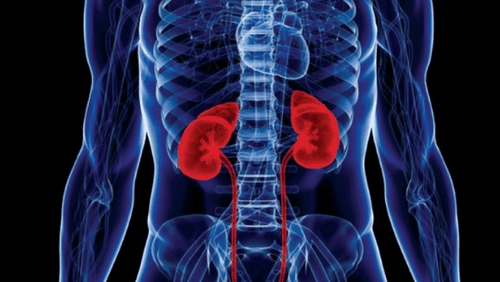This is an automatically translated article.
The article was professionally consulted by Specialist Doctor I Nguyen Hung - Department of Medical Examination & Internal Medicine - Vinmec Danang International Hospital.1. Diabetes
Diabetes mellitus, also known as diabetes, is a chronic disease in which the patient's blood sugar levels are always higher than normal. Due to the patient's body is deficient or resistant to insulin, leading to disturbances in blood sugar metabolism.Diabetes is divided into two main types:
Type 1 diabetes: people with insulin deficiency due to damage to pancreatic beta cells that do not produce insulin. Type 1 diabetes is rare, usually occurs in children, young people account for 5-10% of patients with the disease. Type 2 diabetes: People with type 2 diabetes are resistant to insulin. That is, the body can still produce insulin, but it cannot metabolize glucose. Type 2 diabetes accounts for about 90-95% of people with diabetes. With diabetes, the body doesn't efficiently metabolize glucose from food for energy. Thus, causing a gradual increase in the amount of sugar in the blood. Blood sugar levels will be constantly high, long-term will increase the risk of kidney disease, cardiovascular disease, damage to other organs such as nerves, eyes, or other serious diseases including kidney disease. end stage chronic.

2. Chronic kidney disease due to diabetes
Chronic kidney disease caused by diabetes, also known as diabetic nephropathy, belongs to the group of small vessel complications, the main damage is located in the glomeruli. In particular, the glomerulus is where the blood is filtered to form urine, the substances filtered through the glomerulus include: water, electrolytes potassium, sodium, waste products in the process of metabolism, ...For people with type 1 diabetes, diabetic nephropathy will progress in stages including:
Stage 1: high blood sugar, increased blood flow to the kidneys. Kidneys increase in size. Stage 2: no obvious clinical symptoms. Beginning of histological changes in the glomerulus. Stage 3: albumin sub-albumin (folk often call albumin egg white). This is an indicator of more advanced kidney disease. Without treatment, about 20-40% will progress to clinically apparent nephropathy. Stage 4: clinically apparent nephropathy. The patient will have proteinuria. Albumin in 24-hour urine is greater than 300mg. The kidney's filtering function begins to decline. The patient's blood pressure began to rise. Stage 5: end-stage kidney disease. Without treatment, about 20% will develop end-stage kidney disease, requiring dialysis or a kidney transplant to maintain life. Diabetic nephropathy has the following characteristics:
Continuous albuminuria >300mg/day, determined at least twice within 3-6 months. Gradual decline in glomerular filtration rate Hypertension may appear in the early stages of type 2 diabetes or later.

3. Causes of diabetes leading to chronic kidney disease
The cause of diabetes mellitus leading to chronic kidney disease is due to:Renal artery damage: long-term diabetes causes atherosclerosis of large blood vessels, including renal arteries. The consequent blockage of blood vessels causes hypertension and kidney failure. Due to damage to the small blood vessels in the kidney: people with diabetes for a long time produce oxidizing substances, long-term damage to the small blood vessels in the kidneys. At the same time, when blood sugar is high, the kidneys have to work too hard for many days, making the filter holes bigger, causing microalbumin to leak out into the urine. After a long time, more albuminuria and proteinuria appeared. Due to damage to the nervous system: in patients with diabetes, the transmission of nerve signals from the brain to the organs is affected. The bladder is less stimulated and there is no feeling when the bladder is full of urine, stagnation for a long time will lead to urinary tract infections. The bacteria will go back up to damage the kidneys and lead to chronic kidney disease.
4. Ways to prevent diabetes from leading to chronic kidney disease
Patients with diabetes, in addition to good control of blood sugar and blood pressure, need to have a healthy diet and lifestyle, which helps prevent dangerous complications as well as lead to end-stage chronic kidney disease. Some nutritional regimens for diabetics such as:Limit starches such as rice, potatoes, baked potatoes, vermicelli, ...

At Vinmec International General Hospital, we always deploy a screening package for diabetes and dyslipidemia to help detect pre-diabetes early, accurately classify diabetes type, develop a nutritional regimen, monitoring to minimize the risk and complications caused by diabetes.
Please dial HOTLINE for more information or register for an appointment HERE. Download MyVinmec app to make appointments faster and to manage your bookings easily.














